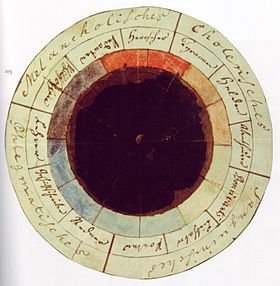
Color psychology is the study of hues as a determinant of human behavior. Color influences perceptions that are not obvious, such as the taste of food. Colours can also enhance the effectiveness of placebos. For example, red or orange pills are generally used as stimulants. Colour can indeed influence a person; however, it is important to remember that these effects differ between people. Factors such as gender, age, and culture can influence how an individual perceives color. For instance, heterosexual men tend to report that red outfits enhance female attractiveness, while heterosexual females deny any outfit color impacting that of men.
Color psychology is also widely used in marketing and branding. Many marketers see color as an important part of marketing because color can be used to influence consumers' emotions and perceptions of goods and services. Companies also use color when deciding on brand logos. These logos seem to attract more customers when the color of the brand logo matches the personality of the goods or services, such as the color pink being heavily used on Victoria's Secret branding. Colors are also important for window displays in stores. Research shows that warm colors tended to attract spontaneous purchasers, despite cooler colors being more favorable.
Source: https://en.wikipedia.org/wiki/Color_psychology
Not indicating that the content you copy/paste is not your original work could be seen as plagiarism.
Some tips to share content and add value:
Repeated plagiarized posts are considered spam. Spam is discouraged by the community, and may result in action from the cheetah bot.
Creative Commons: If you are posting content under a Creative Commons license, please attribute and link according to the specific license. If you are posting content under CC0 or Public Domain please consider noting that at the end of your post.
If you are actually the original author, please do reply to let us know!
Thank You!
Hi! I am a robot. I just upvoted you! I found similar content that readers might be interested in:
https://en.wikipedia.org/wiki/Color_psychology